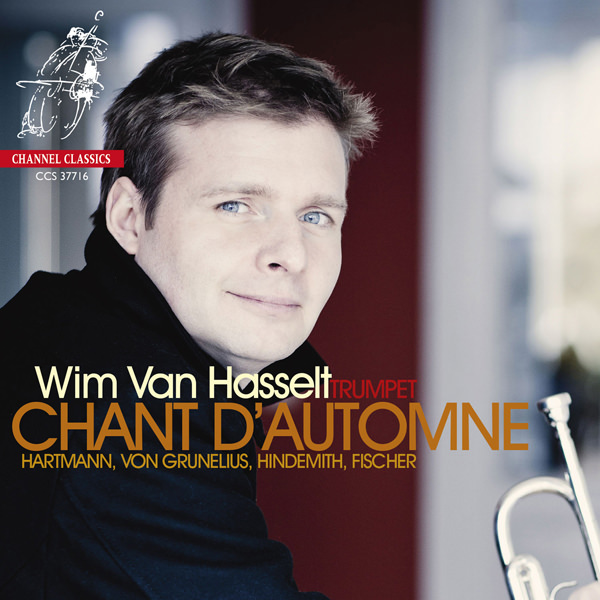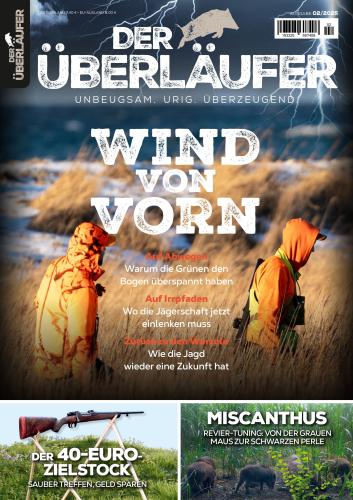
Wim Van Hasselt – Chant d’Automne (2016)
DSF Stereo DSD64/2.82MHz | Time – 53:50 minutes | 2,16 GB | Genre: Classical
Studio Masters, Official Digital Download – Source: nativeDSDmusic | Booklet, Front Cover | © Channel Classics Records B.V.
Recorded: MCO studio 1, Hilversum, October 2015 (Hartmann, Hindemith); BMC studio, Budapest, August 2015 (Grunelius, Fischer)
The title of this album, featuring two world premieres (Grunelius and Fischer), is taken from the composition by the German pianist and composer Wilhelm von Grunelius. The inspiration for his work for flugelhorn, timpani and strings came from the poem ‘Chant d’automne’ by the French poet and art critic Charles Pierre Baudelaire (1821-1867). The use of texts is a recurring theme in this colourful programme of music for the trumpet in a variety of combinations. At the end of the final movement of his Sonata for trumpet and piano, ‘Trauermusik’, Paul Hindemith incorporates Bach’s chorale ‘Alle Menschen mussen sterben’ (BWV 634). In his Eine Deutsch-Jiddische Kantate, Iván Fischer employs texts by Avrom Sutzkever, Rainer Maria Rilke, Johann Wolfgang von Goethe and others. The recording is also of particular value in view of the fact that the two world premieres of music by Grunelius and Fischer are performed by the Budapest Festival Orchestra under Iván Fischer himself, while he also conducts his own Eine Deutsch-Jiddische Kantate, with his daughter Nora Fischer as soprano soloist.
Modern Dutch solo brass players have a knack for programming. For Wim Van Hasselt it’s the creative outlet from various positions in top orchestras (most recently the Concertgebouw and Lucerne) and his current pedagogical one in Freiburg. Following his disc ‘Tintomara’ (6/15) – an eclectic celebration of duo perspective and dialogue with the extraordinary trombonist Jörgen van Rijen – ‘Chant d’automne’ seems no less compelling.
Van Hasselt is an exceptionally fine player with all the equipment in his armoury to delight, surprise and challenge the listener at every turn. Given the paucity of good early- to mid-20th-century ensemble pieces for solo trumpet nestled within a clutch of other instruments, the Hartmann Concertino is a hidden gem. Its recent re emergence is to be welcomed, especially with its tangy and ironic asides (and a delicious Rite of Spring homage in the slow movement) incisively characterised by Van Hasselt and an expert septet of wind and brass.
The Grunelius and Fischer pieces are both premieres, the first a rather earnest and meandering essay for flugelhorn, strings and timpani, the second a quintet of vignettes by Budapest’s conducting maestro Iván Fischer. This affecting cantata is deliciously redolent of the soprano and trumpet duels that pepper the cantata repertory of Italy and Germany in the early 1700s. Fischer’s daughter Nora offers a bright and engaging vision of a coherent fusion of styles, inspired by Rilke and Goethe’s texts and infused with undertones of Entartete Musik. It brilliantly counterpoints the self-suppression of the vehemently anti-fascist Hartmann work and Hindemith’s powerful message in his Sonata from 1939.
In the latter, the opening indication of Mit kraft is too often perceived as representing unfashioned wrought iron. Not here. Van Hasselt launches his rich Germanic sound with fluid élan and considerable interpretative detail, illuminated by the thrilling piano playing of Eriko Takezawa. Jeroen Berwaerts’s recording (Harmonia Mundi, 3/15) is no less exceptionally moulded, and perhaps even more deeply moving at the end with the stark ‘Alle Menschen müssen sterben’ hanging by a thread. This is one of very few top-drawer sonatas for trumpet and piano. Both performances bring new insights to the work.
Van Hasselt’s latest project is testament to the brave, rich and resonant style of exceptional continental trumpet playing which, on this evidence, can be both epic and poetic. -Jonathan Freeman-Attwood, Gramophone
Tracklist:
Karl Amadeus Hartmann (1905-1963)
Concertino for trumpet and 7 solo instruments
1 Toccata 5.09
2 Lied 5.18
3 Quodlibet 4.24
Wilhelm von Grunelius (1942)
4 Chant d’Automne for flugelhorn, timpani and string orchestra 12.23
Paul Hindemith (1895-1963)
Sonata for trumpet and piano
5 Mit Kraft 5.14
6 Mäßig bewegt 2.22
7 Trauermusik. Sehr langsam 8.41
Iván Fischer (1951)
Eine Deutsch-Jiddische Kantate for soprano, trumpet and string orchestra
8 Dreistimmiges Preludium 1.02
9 Wiegenlied 2.29
(Text aus einem jiddischen Volkslied)
10 Deutsche Arie 0.42
(Text aus Rainer Maria Rilke: Ich Weiss es im Traum, und der Traum hat recht)
11 Jiddische Arie 3.36
(Text aus Abraham Sutzkever: Mayn Mame)
12 Grabschrift 2.30
(Text aus Johann Wolfgang von Goethe: Symbolum)
Personnel:
Wim van Hasselt, trumpet
Lucas Macías Navarro, conductor #1-3
Arno Piters, clarine t#1-3
Davide Lattuada, bass clarinet #1-3
Gustavo Núñez, bassoon #1-3
Simon Van Holen, contra bassoon #1-3
Jacco Groenendijk, trumpet #1-3
Fons Verspaandonk, horn #1-3
David Kutz, tuba #1-3
Eriko Takezawa, piano #5-7
Koen Plaetinck, timpani #4
Nora Fischer, soprano #8-12
Budapest Festival Orchestra #4,8-12
Iván Fischer, conductor #8-12
Download:
mqs.link_WimVanHasseltChantdAutmne2016nativeDSDmusicDSD64.part1.rar
mqs.link_WimVanHasseltChantdAutmne2016nativeDSDmusicDSD64.part2.rar
mqs.link_WimVanHasseltChantdAutmne2016nativeDSDmusicDSD64.part3.rar




















![Maria Callas - Remastered The Complete Studio Recordings 1949-1969 (2014) [Qobuz FLAC 24bit/96kHz] Maria Callas - Remastered The Complete Studio Recordings 1949-1969 (2014) [Qobuz FLAC 24bit/96kHz]](https://getimg.link/images/imgimgimg/uploads/2018/12/Vw7IHlv-1.jpg)
![Glenn Gould - The Complete Columbia Album Collection (2015 Remastered Edition) [Qobuz FLAC 24bit/44,1kHz] Glenn Gould - The Complete Columbia Album Collection (2015 Remastered Edition) [Qobuz FLAC 24bit/44,1kHz]](https://getimg.link/images/imgimgimg/uploads/2017/07/2bHwfbA.jpg)
![Netherlands Radio Philharmonic Orchestra, James Gaffigan, Ingo Metzmacher, Christoph Poppen, Michael Schonwandt, Markus Stenz, Osmo Vanska - Karl Amadeus Hartmann: Symphonies Nos. 1-8 (2014) [nativeDSDmusic DSF DSD64/2.82MHz] Netherlands Radio Philharmonic Orchestra, James Gaffigan, Ingo Metzmacher, Christoph Poppen, Michael Schonwandt, Markus Stenz, Osmo Vanska - Karl Amadeus Hartmann: Symphonies Nos. 1-8 (2014) [nativeDSDmusic DSF DSD64/2.82MHz]](https://getimg.link/images/imgimgimg/uploads/2019/01/xUV4HwU.jpg)
![Miah Persson, Budapest Festival Orchestra, Ivan Fischer - Mahler: Symphony No. 5 (2013) [nativeDSDmusic DSF DSD64/2.82MHz] Miah Persson, Budapest Festival Orchestra, Ivan Fischer - Mahler: Symphony No. 5 (2013) [nativeDSDmusic DSF DSD64/2.82MHz]](https://getimg.link/images/imgimgimg/uploads/2018/11/SPEpHT6.jpg)
![Zuzana Ruzickova - J.S. Bach: The Complete Keyboard Works (2016) [FLAC 24bit/96kHz] Zuzana Ruzickova - J.S. Bach: The Complete Keyboard Works (2016) [FLAC 24bit/96kHz]](https://getimg.link/images/imgimgimg/uploads/2018/09/r94XYtX.jpg)
![Budapest Festival Orchestra, Ivan Fischer - Brahms: Symphony no. 2 (2014) [nativeDSDmusic DSF DSD64/2.82MHz] Budapest Festival Orchestra, Ivan Fischer - Brahms: Symphony no. 2 (2014) [nativeDSDmusic DSF DSD64/2.82MHz]](https://getimg.link/images/imgimgimg/uploads/2018/12/RIfeSaY.jpg)
![Budapest Festival Orchestra, Ivan Fischer - Beethoven: Symphony Nos. 4 & 6 (2010) [SACD DSF DSD64/2.82MHz] Budapest Festival Orchestra, Ivan Fischer - Beethoven: Symphony Nos. 4 & 6 (2010) [SACD DSF DSD64/2.82MHz]](https://getimg.link/images/imgimgimg/uploads/2018/01/RXiASRq.jpg)
![Budapest Festival Orchestra, Ivan Fischer - Bruckner: Symphony No. 7 (2014) [DSF DSD64/2.82MHz] Budapest Festival Orchestra, Ivan Fischer - Bruckner: Symphony No. 7 (2014) [DSF DSD64/2.82MHz]](https://getimg.link/images/imgimgimg/uploads/2018/08/sGmvwYb.jpg)
![Pieter Wispelwey, Budapest Festival Orchestra, Ivan Fischer - Dvorak: Cello Concerto, Symphonic Variations (2007) [DSF DSD64/2.82MHz] Pieter Wispelwey, Budapest Festival Orchestra, Ivan Fischer - Dvorak: Cello Concerto, Symphonic Variations (2007) [DSF DSD64/2.82MHz]](https://getimg.link/images/imgimgimg/uploads/2018/12/r9YxUyW.jpg)
![Miah Persson, Budapest Festival Orchestra, Ivan Fischer - Mahler: Symphony No. 4 (2009) [nativeDSDmusic DSF DSD64/2.82MHz] Miah Persson, Budapest Festival Orchestra, Ivan Fischer - Mahler: Symphony No. 4 (2009) [nativeDSDmusic DSF DSD64/2.82MHz]](https://getimg.link/images/imgimgimg/uploads/2018/11/DRd52Ah.jpg)
![Johannes Brahms - Symphony No. 4; Hungarian Dances 3, 7 & 11 - Budapest Festival Orchestra, Ivan Fischer (2015) [nativeDSDMusic DSF DSD64/2.82MHz] Johannes Brahms - Symphony No. 4; Hungarian Dances 3, 7 & 11 - Budapest Festival Orchestra, Ivan Fischer (2015) [nativeDSDMusic DSF DSD64/2.82MHz]](https://getimg.link/images/imgimgimg/uploads/2016/11/0csTmr5.jpg)
![Turku Philharmonic Orchestra, Erkki Lasonpalo & Eva Ollikainen - Kalevi Aho: Timpani & Piano Concertos (2018) [FLAC 24bit/96kHz] Turku Philharmonic Orchestra, Erkki Lasonpalo & Eva Ollikainen - Kalevi Aho: Timpani & Piano Concertos (2018) [FLAC 24bit/96kHz]](https://getimg.link/images/imgimgimg/uploads/2020/01/APFCSUy.jpg)
![Budapest Festival Orchestra, Ivan Fischer - Mahler: Symphony No. 6 (2006) [nativeDSDmusic DSF DSD64/2.82MHz] Budapest Festival Orchestra, Ivan Fischer - Mahler: Symphony No. 6 (2006) [nativeDSDmusic DSF DSD64/2.82MHz]](https://getimg.link/images/imgimgimg/uploads/2018/11/E2Qio7s.jpg)
![Czech Philharmonic Choir of Brno, Budapest Festival Orchestra, Ivan Fischer - Tchaikovsky: Symphony No. 6 ‘Pathetique’ (2016) [nativeDSDmusic DSF DSD64/2.82MHz] Czech Philharmonic Choir of Brno, Budapest Festival Orchestra, Ivan Fischer - Tchaikovsky: Symphony No. 6 ‘Pathetique’ (2016) [nativeDSDmusic DSF DSD64/2.82MHz]](https://getimg.link/images/imgimgimg/uploads/2019/05/wbGuhzZ.jpg)
![Budapest Festival Orchestra, Ivan Fischer - Dvorak: Symphony No. 7 & American Suite (2010) [nativeDSDmusic DSF DSD64/2.82MHz] Budapest Festival Orchestra, Ivan Fischer - Dvorak: Symphony No. 7 & American Suite (2010) [nativeDSDmusic DSF DSD64/2.82MHz]](https://getimg.link/images/imgimgimg/uploads/2018/02/g8s5m8G.jpg)